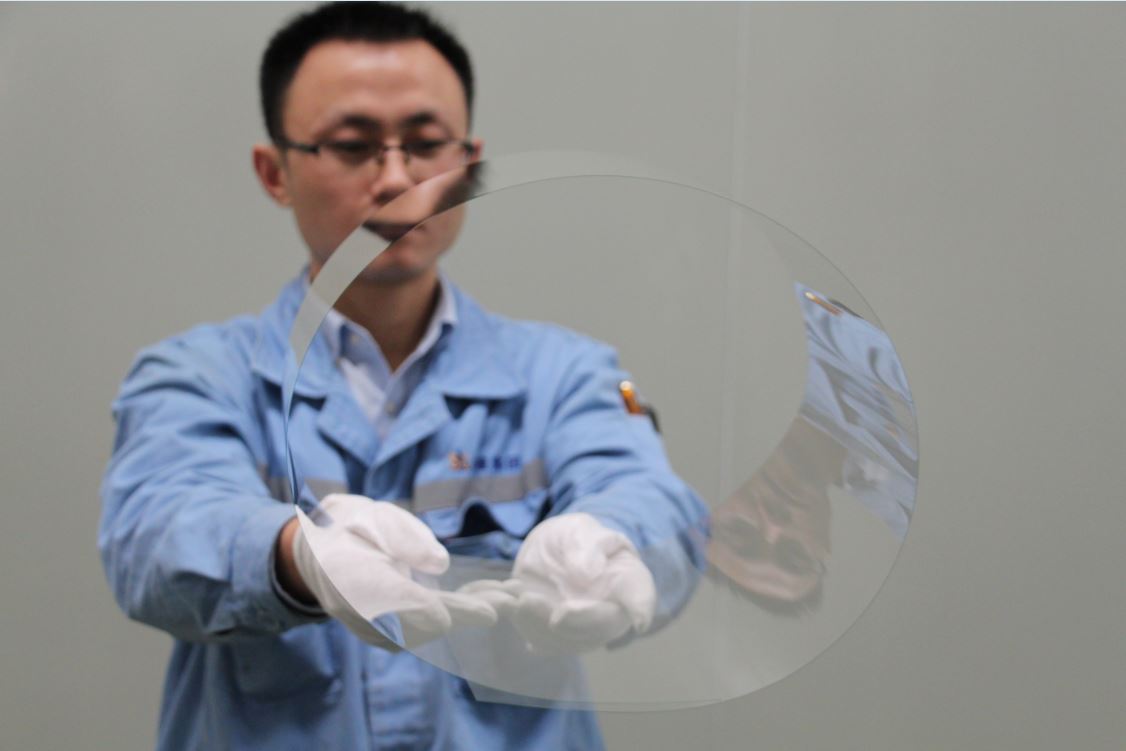Making the world's towers and resorts shine brightly

Glass-maker CSG Holding's stress on quality, transparency brings success abroad
Be it the 30th Street of New York's central business district of Manhattan, the Tower Hamlets in London, the International Financial Center and the Royal Atlantis Resort in Dubai, or the Dream Tower in Jeju Island, South Korea, one common feature is the Chinese-made glass used in the architectural marvels there. CSG Holding Co Ltd is proud of its contributions to the world.
The Shenzhen, Guangdong province-based glass giant's footprint spans more than 40 countries and regions in East Asia, Southeast Asia, North America, Europe, Australia, North Africa and the Middle East.
One of the world's largest glass processors, CSG Holding is the only glass enterprise in China to hold two "well-known" trademarks. In China, as elsewhere, trademark owners such as CSG are keen to exploit the valuable reputation they have built up assiduously over the years, and to protect their brand from misuse by third parties.
CSG Holding began its journey 36 years ago when it was just a small glass trading company. "CSG Holding started with $500,000 in total assets. Back in 1984, there was hardly any modern glass industry in China. From our trading experience, we noticed that domestic demand for infrastructure investment was surging. However, there was a shortage of high-quality construction materials. That was when the company started to transform itself into an expert glass manufacturer," said Yang Xinyu, secretary of the board of CSG Holding.
"Meanwhile, during the process of international glass trading, we had tried to introduce advanced float glass manufacturing technology which creates smoother and better quality glass through cooperation with, or purchasing from, the world's industry leaders. However, the cost and the additional conditions were extremely high and harsh, which made the cooperation or the deal a 'mission impossible'.
"Therefore, we had no choice but to take the path of 'self-reliance' in the creation and development of the manufacturing technology. We supplemented it through the integration of foreign technology later. Ever since, one of CSG's basic business rules-innovative development, self-reliance, intellectual property rights-was adhered to."
Nonetheless, CSG found that sometimes it is hard, even dangerous, to be the "first crab-eater". The company experienced quite a few difficult periods in technology exploration and evolution of float glass, glass coating and processing, photovoltaic module panels, electronic display glass, and other businesses. One such difficult period led CSG to master the float glass technology in 1990s.
The company raised funds in 1992 for a float glass project. A glass sheet made by floating molten glass on a bed of molten metal like tin or lead is called float glass, which has uniform thickness and very flat surface, and usually comes in clear and tinted types. The float glass products produced in the first two years were not able to meet the standard of downstream deep processing. Rather than supplying such below-par glass to customers, CSG destroyed its products, incurring considerable loss, but sowing the seeds for a quality-oriented approach to its global business.
"We endured a lot of pressures and queries from everywhere," Yang recalled.
In 1996, CSG successfully built its first float glass production line, becoming the first company in China to own independent intellectual property rights in float glass manufacturing.
Zheng Xiaogang, chief analyst specialized in building materials at China Merchants Securities, attributed the success of China's glass manufacturing industry to domestic enterprises' concerted efforts. "Without their devotion to innovative development and self-reliance in intellectual property rights, the industry would not have achieved the high quality of its products today."
Yang said the manufacturing level and capacity of Chinese enterprises have leapfrogged several notches in the recent years. "Maintaining a relatively high manufacturing level and capability gives China and some other countries an advantage in controlling the epidemic situation, which enables them to get the replenishment of medical supplies quickly during the special period. It also guarantees the quick revival of their national economy after work resumption," he said.
He could have added flexibility to those factors. CSG demonstrated its outstanding flexibility and versatility in manufacturing, as well as its ability to repurpose itself to serve the community as per the needs of the situation, by quickly changing tack to produce medical masks during the epidemic. Recognizing the rapidly surging need for masks, it established its medical technology subsidiary in Shenzhen on Feb 10. Four days later, the first batch of masks were produced and ready for dispatch globally.
CSG's daily production capacity of disposable medical masks has reached 2 million pieces. In other words, it produces nearly 1,500 masks every minute.
The company's manufacturing base in China produces and exports glass. More such plants are likely to be set up in South America and elsewhere across the world in the years to come, according to senior company executives.
"The overseas manufacturing layout helps us to deliver glass in a quicker manner, further meet customer demands, and offer a better user experience. In this way, we are able to gain a solid foothold in the growing markets overseas," Yang said.
According to the company, in 2019, its overseas sales revenue totaled 1.35 billion yuan ($190.9 million), nearly 13 percent of the total.